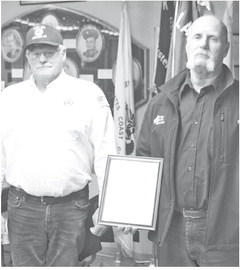“You could consider all [political ….
“You could consider all [political party members] a gang,” Dixon added, further questioning what happens if there are only two people and not three or more in a group or don’t have a name for their group.
Committee members also reviewed a list of 15 bullet points that are criteria for signs that someone is in a gang from wearing distinctive or matching clothing, possessing literature about the gang, attending functions sponsored by the gang, or loiter or ride with gang members.
“We could follow this and the Boy Scouts would be in trouble,” Sullivan said advising the committee to eliminate the list of criteria.
Dixon noted the criteria such as matching a gang profi le by law enforcement, being suspected of gang membership by “reliable informants” and being identified by others. “There is a lot of room for Joe McCarthy in this,” Dixon said, referring to the former Wisconsin senator who led hearings about alleged communists during the Red Scare of the 1950s.
In addition to purging the list of criteria identifying possible gang membership, they also eliminated from the policy a form letter to parents of students that were suspected of gang activity. The policy was reviewed in first reading and will come back for a second reading before final approval at the December school board meeting.
Other first reading policies reviewed included the co-curricular drug testing policy, the weapons in school policy and the weapons in school policy when dealing with students with disabilities, use of two-way communication devices, and use of laser devices such as laser pointers.
Committee member Barb Knight questioned the continued relevancy of the communication devices and laser pointer policies given technology changes in the 30 years since the communication device policy was written and the 21 years since the laser device policy was written.
“Are they still a thing?” she asked.
Sullivan said it is rare to see a teacher using a laser pointer in a classroom anymore, but he said every now and then a student is found with one and using it to disrupt a program or assembly.
As far as the communication devices, he said occasionally they will see younger students with walkie talkies or things like that. The policy lists technology that has been largely supplanted by modern cellphones.
In second reading, committee members reviewed and approved the following policies: Student government; code of classroom conduct; distribution of non-school material; hazing, possession of tobacco products; and possession or use of alcohol or drugs.
Other than a few minor grammatical or typographical changes, the only significant modifications on these policies was over continued use of the forms for alerting parents when a student was removed from a class. Committee members questioned if the forms were being used. It was suspected that teachers are using electronic communication through the district’s Skyward system rather than using a form letter.
In addition, committee members approved a policy change allowing the superintendent to authorize pay for substitute support staff at the rate of pay of a starting employee and that, as with teachers and paraprofessionals, they will be able to receive a free lunch on days they work.
Sullivan had asked for the change because of the increasing difficulty of getting substitute assistants, custodians and secretarial positions. He said this is being driven by market forces that make it hard to find workers.
“We are struggling to get subs and pay is the big issue,” he said. If approved by school board, the policy will be retroactive to October 21.



